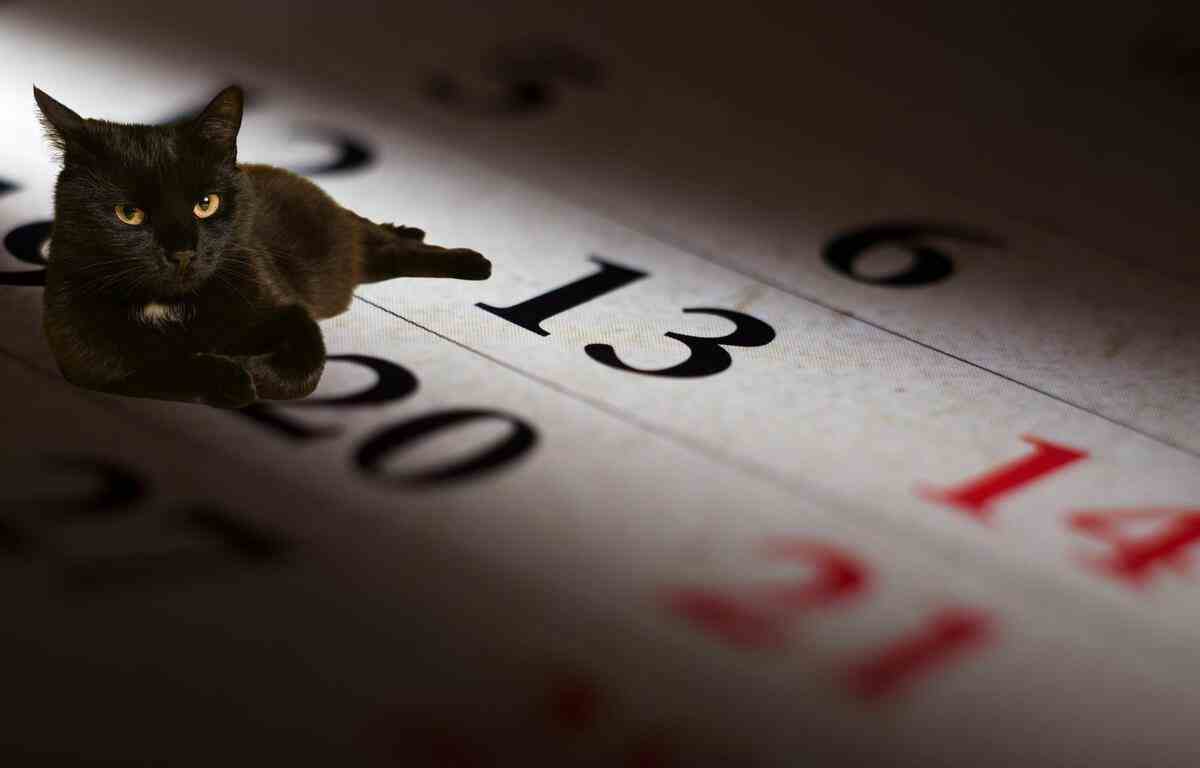Pass under a ladder, cross a black cat or break a mirror, etc. Dark omens are camouflaged behind these seemingly harmless events. And if they take place on a Friday the 13th, the symbolism is all the more disastrous. But why is Friday the 13th unlucky in our culture? 20 minutes takes stock of this cursed day.
The Story of Jesus
The superstition surrounding Friday the 13th is powerful: no room number 13 in hotels, no seat number 13 in some planes or even no floor number 13 in many buildings. “The core of this superstition is Christian history and more particularly the story of Jesus”, deciphers Stéphanie Wyler, lecturer in history and anthropology of the Roman worlds at the University of Paris-Diderot.
During the last meal of the Christian prophet, 13 guests were seated. The thirteenth apostle was Judas who then betrayed Jesus. Arrested, the Messiah would have been executed on a Friday. “At the time, the calendars did not work in the same way, all of this has been reconstituted”, stresses Stéphanie Wyler, however. The death of the Christian messiah could therefore have occurred on another day. Especially since “Friday the 13th has no value in official religions, it is rather an alternative truth, negative – or positive – powers associated with a day”, specifies the historian.
The poetry of numbers
From Antiquity, the 13 had a “particular value” and imposed itself as a “counterpoint of the 12”. 12 was considered a perfect number: 12 constellations of the zodiac, 12 months of the year, 12 hours of day and night, 12 labors of Hercules, etc. “It’s an opposition of manageable and unmanageable figures. The 12 is divisible and mathematically interesting while the 13 is only divisible by itself”, explains Stéphanie Wyler.
The lack of mathematical appeal of the number 13 was important in ancient times during which philosophers were often mathematicians, like Pythagoras and his famous theorem which haunted many French people. “The Greek philosophers reflected on the symbolism of numbers”, abounds the teacher-researcher. Indomitable, this prime number does not appeal to all lovers of numbers.
To each his number of bad luck
Every country in the world has its cursed number. In Asia, the number four is particularly hated. Its pronunciation is close to the word “death” in Chinese and Japanese, so it is often excluded from floors and sometimes even from stalls where people prefer to write “3 + 1 yuan” rather than four. If in the United States, the number 13 is particularly marked by the seal of infamy as in the United Kingdom where the properties located at number 13 are sell for less than their neighborsthis is not the case with our Italian neighbours.
With them, we focus instead on 17 – also a prime number – which is the anagram of “Vixi” in Roman numerals. A word that means “I lived” and, therefore, by extension “I died”. “Seat 17 does not exist in Italian planes,” emphasizes Stéphanie Wyler. In the land of the Dolce vita, we dread Friday the 17th.
Those Black Friday the 13th
For triskaidekaphobes – those who are afraid of the number 13, the tragic events linked to it fuel their anxiety. One of the best known is that of the Apollo-13 mission which, not content to carry the hated number directly in its name, took off in 1970 at 1:13 p.m. precisely. An oxygen tank exploded causing the mission to be aborted – but the crew thankfully returned to Earth safe and sound.
On Friday, October 13, 1307, the French king Philippe le Bel had the Templars arrested and tortured, an event that would destroy the order. In recent history, we can also cite Friday, November 13, 2015, the day of the Paris attacks during which 130 people were killed or the sinking of the Costa Concordiaon Friday January 13, 2012 which cost the lives of 32 people.
“A little freedom on the misunderstood”
It is also said that great Western figures shared this superstition. Thus, Napoleon Bonaparte would have always refused to take part in dinners which brought together 13 guests and Franklin D. Roosevelt like Winston Churchill would never have traveled on a Friday the 13th. , more simply, of “death”.
Conversely, games of chance make it a marketing argument. For the Française des jeux, Friday the 13th rhymes with big jackpots. Whether we think it brings us luck or bad luck, the symbolism of this day can be reassuring. “Neither the religious nor the scientific explain everything so far so we keep this” something else “which remains at the discretion of each: a little freedom on the misunderstood”, concludes Stéphanie Wyler.

